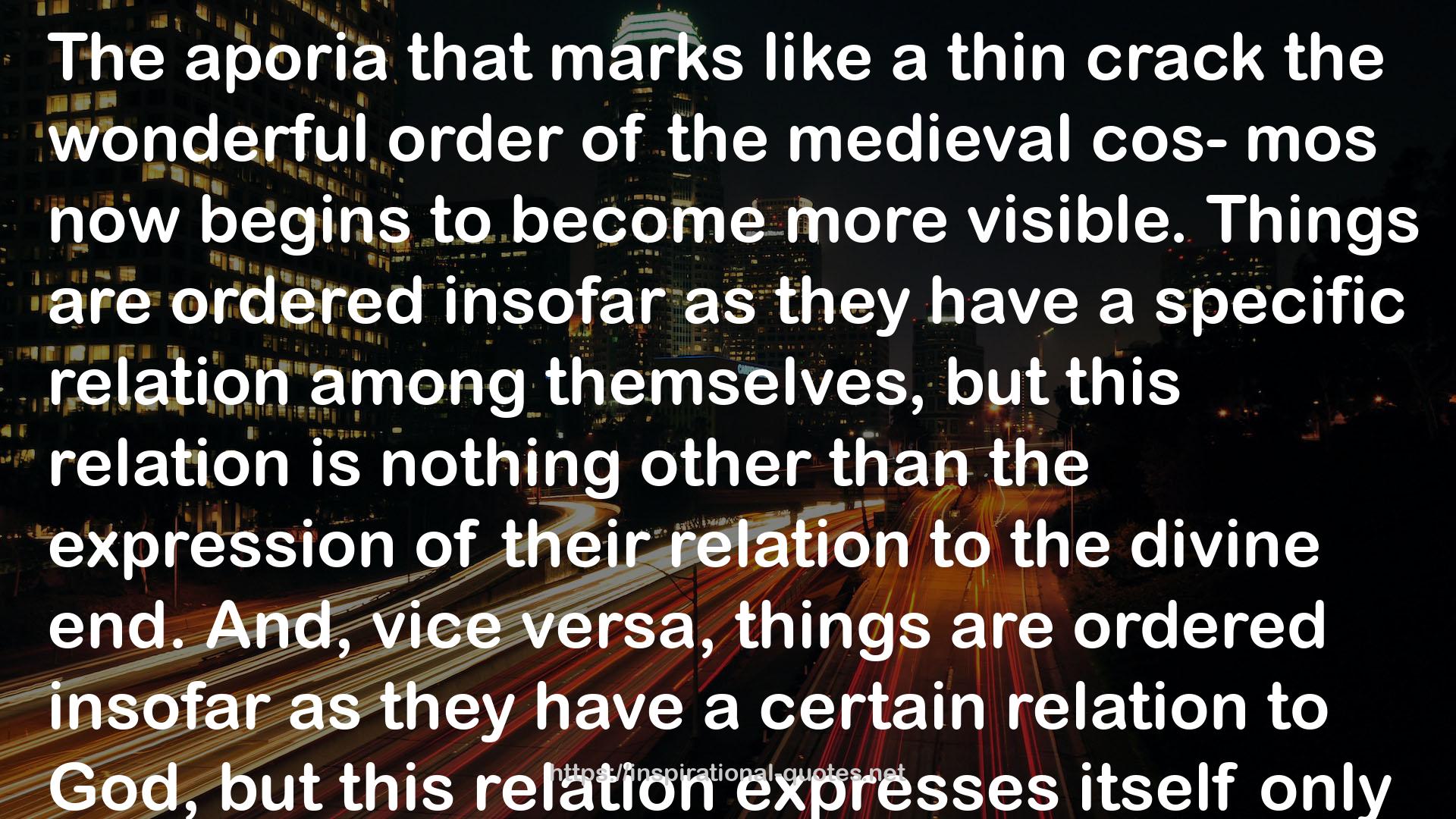" The aporia that marks like a thin crack the wonderful order of the medieval cos- mos now begins to become more visible. Things are ordered insofar as they have a specific relation among themselves, but this relation is nothing other than the expression of their relation to the divine end. And, vice versa, things are ordered insofar as they have a certain relation to God, but this relation expresses itself only by means of the reciprocal relation of things. The only content of the transcendent order is the immanent order, but the meaning of the immanent order is nothing other than the relation to the transcendent end. “Ordo ad finem” and “ordo ad invicem” refer back to one another and found themselves on one another. The perfect theocentric edifice of medieval ontology is based on this circle, and does not have any consistency outside of it. The Christian God is this circle, in which the two orders continuously penetrate one another. Since that which the order must keep united is in point of fact irremediably divided, not only is ordo—like Aristotle’s being—dicitur multipliciter (this is the title of Kurt Flasch’s dissertation on Thomas), but ordo also reproduces in its own structure the ambi-guity that it must face. From this follows the contradiction, noticed by scholars, according to which Thomas at times founds the order of the world in the unity of God, and at times the unity of God in the immanent order of creatures (see Silva Tarouca, p. 350). This apparent contradiction is nothing other than the expression of the ontological fracture between transcendence and immanence, which Christian theology inherits and develops from Aristotelianism. If we push to the limit the paradigm of the separate substance, we have the Gnosis, with its God foreign to the world and creation; if we follow to the end the paradigm of immanence, we have pantheism. Between these two extremes, the idea of order tries to think a difficult balance, which Christian theology is always in the pro- cess of losing and which it must at each turn regain. "
― Giorgio Agamben , The Omnibus Homo Sacer
